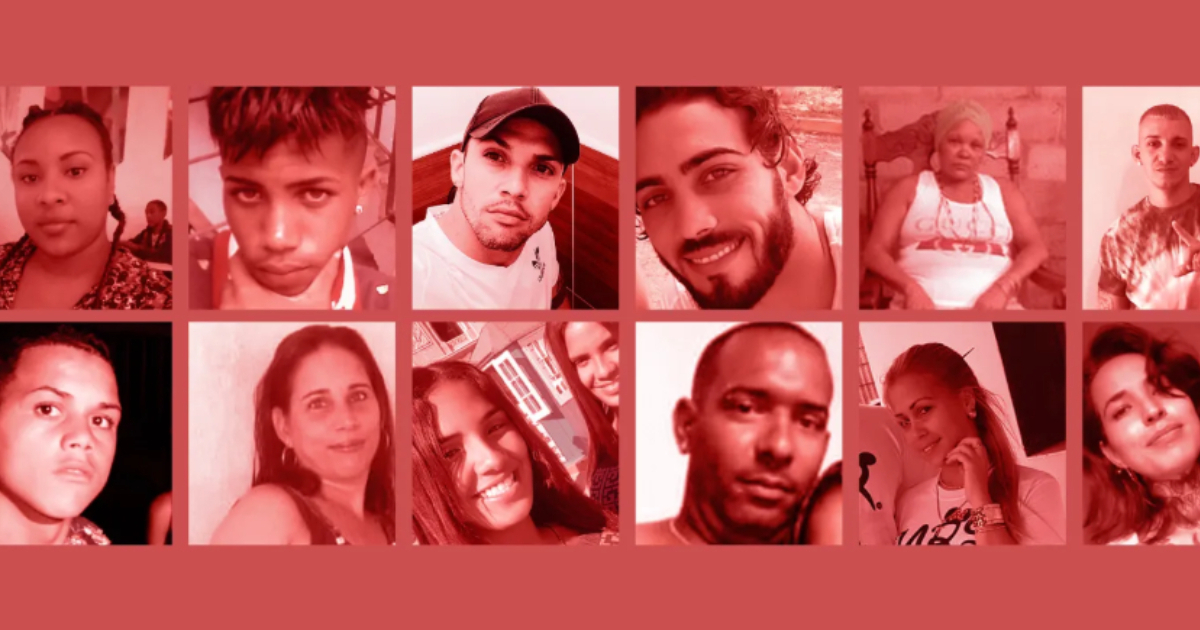In the aftermath of an agreement between the Cuban regime and the United States, mediated by the Vatican, nearly 30 Cuban political prisoners have been released within the first 36 hours. Among the freed are Luis Robles Elizastigui and participants of the July 11 protests. On January 14, 2025, the Cuban government announced a phased release of 553 individuals serving sentences for various charges. Within the first 24 hours, 22 were released, with more following, including prominent opposition leader José Daniel Ferrer García, as tracked by the human rights organization Cubalex.
The regime's statement clarified that these releases would occur under special conditions, allowing the freed individuals to remain under surveillance and with legal obligations, such as temporary parole licenses. Cubalex is independently verifying each confirmed case. As of publishing this report, the real-time list shows 28 prisoners have been freed.
The list includes Andro Ledesma Prieto, Arturo Valentín Riverón, Carlos Manuel Pupo Rodríguez, César Adrián Delgado Correa, Dariel Cruz García, Donaida Pérez Paseiro, Eduin Rodríguez Fonseca, Endris Fuentes Zamora, Iris Belkis Oduardo Rodríguez, Javier González Fernández, Jorge Gabriel Arruebarruena León, Jorge Luis Salazar Brioso, José Daniel Ferrer García, José Miguel Gómez Mondeja, Juan Yanier Antomarchi Núñez, Katia Beirut Rodríguez, Liliana Oropesa Ferrer, Lisdani Rodríguez Isaac, Lisdiany Rodríguez Isaac, Liván Hernández Sosa, Luis Robles Elizastigui, Magdiel Rodríguez García, Mailene Noguera Santiesteban, Randy Arteaga Rivera, Reyna Yacnara Barreto Batista, Rogelio Lázaro Domínguez Pérez, Rowland Jesús Castillo Castro, and Yessica Cohimbra Noriega.
Despite their release, these individuals remain subject to legal constraints, according to Cubalex. The Cuban government has denied claims linking these releases directly to a negotiation with the U.S., though Biden administration sources confirmed the process is linked to an agreement in which Cuba agreed to free a substantial number of political prisoners.
Facilitated by the Catholic Church, the agreement also involved the U.S. removing Cuba from the list of state sponsors of terrorism and suspending Title III of the Helms-Burton Act. This shift in U.S. policy followed a December 2023 report that kept Cuba on the terrorism sponsor list. However, by late 2024, the Biden administration's more conciliatory stance led to the prisoners' release and a reduction in economic sanctions.
Meanwhile, documentation of repression against dissidents on the island continues. The recent cases of Félix Daniel Pérez Ruiz and Cristhian de Jesús Peña Aguilera, sentenced to five and four years respectively for expressing dissent on social media, highlight ongoing human rights abuses under the Díaz-Canel regime. They were charged with "propaganda against the constitutional order" for their critical posts.
Cubalex urges those benefiting from the releases and their families to stay informed and consult with lawyers about their legal status, especially concerning temporary parole. The organization offers legal advice for those needing guidance regarding the release process. For further details or to report release cases, Cubalex has made its contact channels available to the public.
Understanding the Cuban Political Prisoner Release
What triggered the release of political prisoners in Cuba?
The release was initiated following an agreement between the Cuban government and the United States, mediated by the Vatican, which included the gradual release of 553 individuals imprisoned for various offenses.
Are the released prisoners completely free?
No, the released prisoners are not entirely free as they must adhere to specific legal obligations and remain under surveillance.
How has the U.S. policy towards Cuba changed recently?
The U.S. policy shift involved removing Cuba from the list of state sponsors of terrorism and suspending Title III of the Helms-Burton Act, following a more conciliatory approach by the Biden administration.
